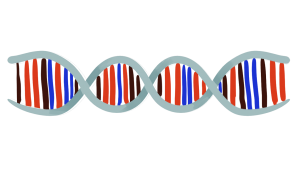Gene editing is ethical and should be used
April 8, 2019
This past November, a Chinese researcher revealed to the world the birth of a pair of first-of-their-kind genetically engineered twin girls, according to the Associated Press. The researcher, He Jiankui, was studying the possibility of creating a child who would be immune to the disease HIV. His work, among others, shows that the the future of modifying human genes in any number of ways appears promising and may not remain merely the work of science fiction writers for long.
Currently, gene editing and using CRISPR, a tool that allows researchers to easily edit DNA sequences, are still infantile and in experimental phases. According to a report from Vox, while CRISPR’s history goes all the way back to 1987 Japan, only in the past decade has CRISPR been used on human cells. A landmark paper showing how CRISPR could be used to cut the genome at any spot desired was published in 2012. This paper would pave the way for future innovations in genetic engineering. CRISPR technology is far from perfect, and great amounts of further testing are obviously required before it can be used safely.
Despite all of this, let us look into the future. Soon gene editing and CRISPR could be successful, as safe as any other medicine, and regulated so that only qualified experts are working with gene editing. At this point is where the ethical quandary resides: at what point does genetic engineering go too far? Do we use it only to prevent genetic diseases? To cure diseases? Do we allow parents to choose specific traits for their children to possess, similar to the “designer babies” that get thrown around in the media so often?
The future of using genetic engineering as a remedy for genetic disease looks bright. According to TIME, researcher Shoukhrat Mitalipov used CRISPR to splice out a mutated gene that would cause a heart condition in more than 50 single cell embryos at a success rate of 72%. In another case, according to The Guardian, a team of researchers showed that muscular dystrophy, a disease that causes the degradation and loss of muscles over time, could be overcome in mice using genetic engineering to boost a second gene which would increase the production of a protein that could counteract the effects of the disease. And let us not forget He Jiankui’s research; while it remains admittedly unreviewed, it does include the birth of two twins and a second pregnancy where the children are reportedly immune to HIV by way of CRISPR.
These are just some of the examples of real applications for genetic engineering that do not carry with them the stigma of things like engineering for aesthetics do. Real solutions to genetic diseases that up until now, may have been life-threatening or completely debilitating to those that possess them. If we are able to prevent these diseases from happening, then why shouldn’t we?
If the dystopian future depicted so often by the media surrounding genetic engineering and designer babies comes to fruition, the decision as to what extent genetic engineering should be allowed should remain fully up to the individual and the free market that will provide the services to engineer those children. As long as those procedures being carried out live within the confines of what is regulated and safe, the ethical decision of going through with genetic engineering or not should be left up to the consumer. Any parent should be able to decide to what extent their child will be genetically engineered. This is the free market approach to the ethical dilemma.
Improved intelligence, improved athleticism, and improved physical beauty all remain open possibilities for the future of genetic engineering. Why should we as a society prevent these great possibilities from becoming a reality? If these technologies become a product that can be marketed and sold, if there are consumers that would like to purchase and use them, then let it be. If this is truly a technology that the people don’t want to see being able to be used, then in the free market, the business providing the technology will fail.
The free market is a form of democracy; just like voting, members of the democracy purchase what they would like to use and those things that they purchase succeed and thrive. In this case, leaving it up to consumers to decide if they would like to see these technologies and genetic engineering on humans thrive or fail means that it’s not up to a group of scientists in a locked room who have their view on the world and ethics. It is the combined view of everyone in the economy that determined whether or not genetic engineering on humans is permissible.







